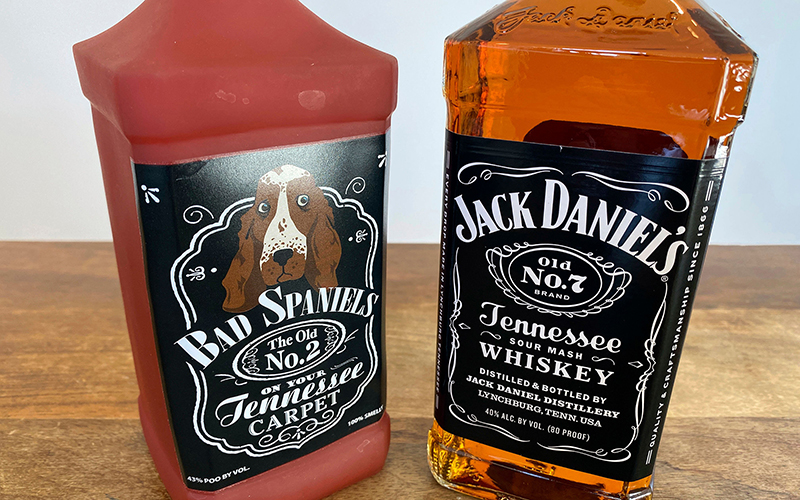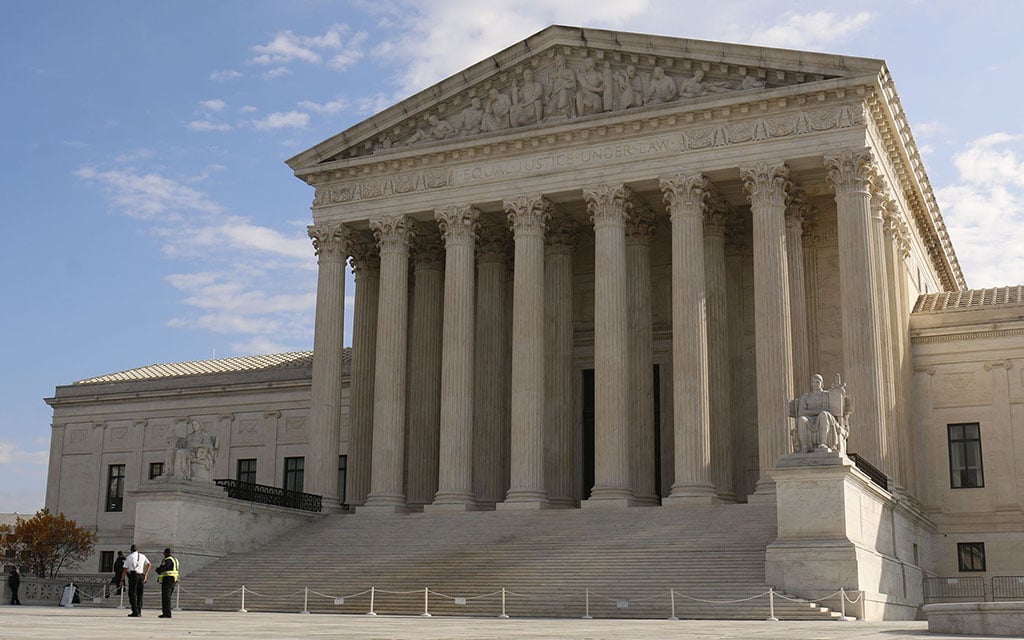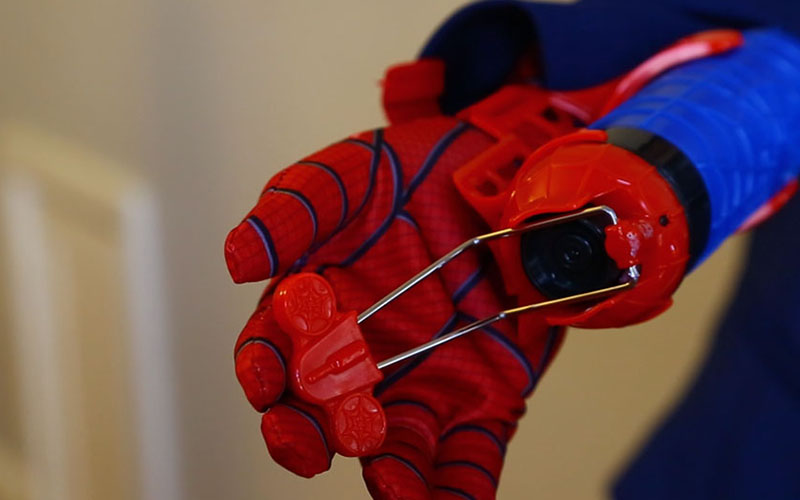WASHINGTON – A Scottsdale company that makes doggy chew toys spoofing Jack Daniel’s and other brands is not protected from trademark infringement suits by its claim that it was merely parodying, not appropriating, those brands, the Supreme Court ruled.
The unanimous ruling Thursday said VIP Products’ “Bad Spaniels” chew toy, which mimics a Jack Daniel’s bottle, may have had elements of parody but was essentially using the distiller’s trademark as a mark for its own products.
A lower court had said VIP’s products – which include chew toys labeled “Heinie Sniff’n” and “Mountain Drool” – enjoyed First Amendment protection as parodies. But Justice Elena Kagan disagreed.
Writing for the court, Kagan said it was “not appropriate when the accused infringer has used a trademark to designate the source of its own goods—in other words, has used a trademark as a trademark.” She said that kind of use does not receive special First Amendment protection.
The justices sent the case back to a lower court to determine if Bad Spaniels was likely to cause confusion with Jack Daniel’s among consumers, which Kagan said is the only question remaining in the case.
VIP Products owner Stephen Sacra said in an emailed statement Friday that, “At this time, legal has suggested that we refrain from comment.” But Jack Daniel’s on Thursday welcomed the ruling.
“We are pleased with the Supreme Court’s unanimous decision recognizing the rights of brand owners,” the distiller said in an emailed statement, adding that it will “continue to support efforts to protect the goodwill and strength of this iconic trademark.”
The case began after VIP Products added Bad Spaniels to its Silly Squeakers line of chew toys in 2014.
The Bad Spaniels toy, which was still available for purchase Thursday, has the distinctive square shape of a Jack Daniel’s bottle. Where the whiskey bottle says “40% alc. by vol. ” and “Old No. 7 Tennessee Sour Mash Whiskey,” the dog toy says “43% poo by vol.” and “100% smelly,” in similar lettering, and is labeled “Old No.2 On Your Tennessee Carpet.”
To Jack Daniel’s, these jokes diluted the brand of their world-famous whiskey by associating it with dog excrement and infringed on their trademarks by leading consumers to believe they had created the chew toys.
It sent a letter demanding that VIP stop selling the toy, but the Scottsdale firm responded by going to court and seeking a judgment that its toy did not infringe on the trademark. That sparked a countersuit and a series of rulings that sided first with Jack Daniel’s and, on appeal, with VIP before landing in the Supreme Court.
J. Michael Keyes, a lawyer with Dorsey & Whitney, said in an emailed statement that the court’s ruling “will be an appreciated result for established, mature brands that need to fend off other users and copyists in the marketplace.”

A bottle of Jack Daniel’s Tennessee Whiskey next to VIP Products’ dog toy, Bad Spaniels. (Photo by Jessica Gresko/AP/Shutterstock)
“It may be indicative of a broader trend of the Court protecting IP (intellectual property) owners and looking more askance at those that copy and imitate those protected works,” said Keyes, referencing a recent Supreme Court case involving Andy Warhol’s work. “Just as the copyright holder prevailed in the Andy Warhol case, so too did the trademark owner prevail today.”
But he also said that “not all hope is necessarily lost for VIP,” which he said could still successfully make the case that its product is not confusing consumers.
In a concurring opinion, Justice Sonia Sotomayor warned that courts hearing trademark infringement claims should use care when considering surveys, which are often used by trademark holders to show consumer confusion. But Sotomayor, joined by Justice Samuel Alito, said those surveys can be used to sow confusion as well as show it.
Survey answers, they wrote, “may reflect a mistaken belief that all parodies require permission from the owner of the parodied mark.”
“Plaintiffs can point to this misunderstanding of the legal framework as evidence of consumer confusion” that may not exist, Sotomayor wrote. If given undue weight in evidence, “well-heeled brands with the resources to commission surveys would be handed an effective veto over mockery.
“After all, ‘no one likes to be the butt of a joke, not even a trademark,'” she wrote.


